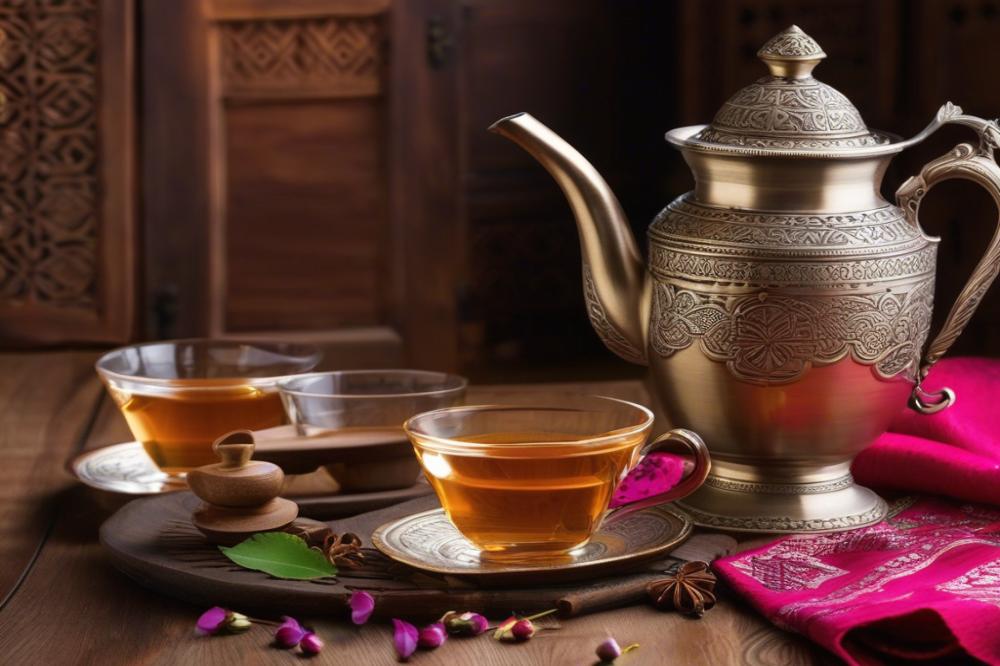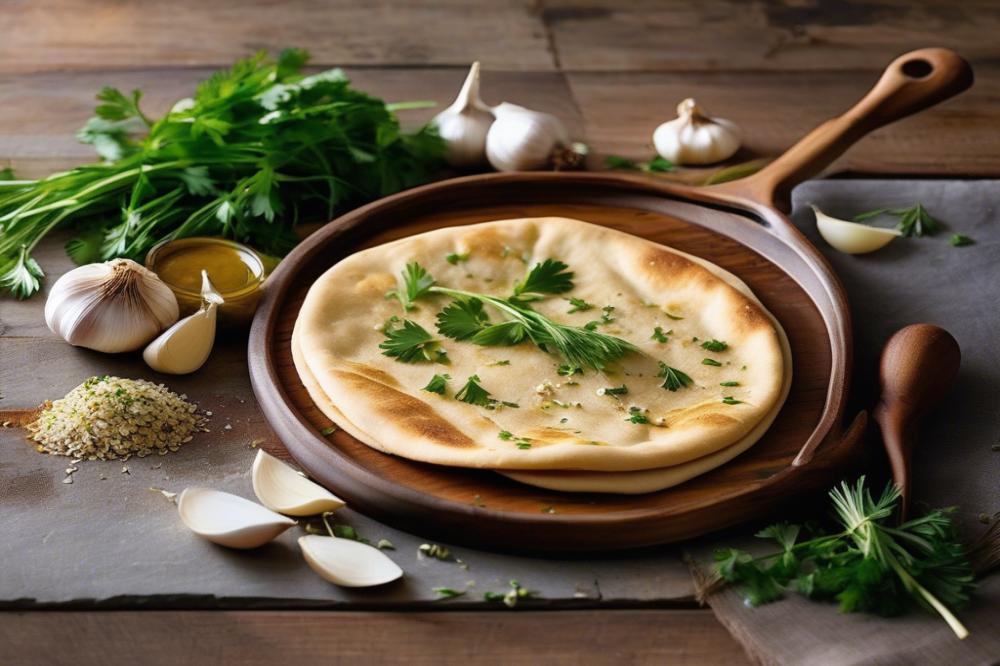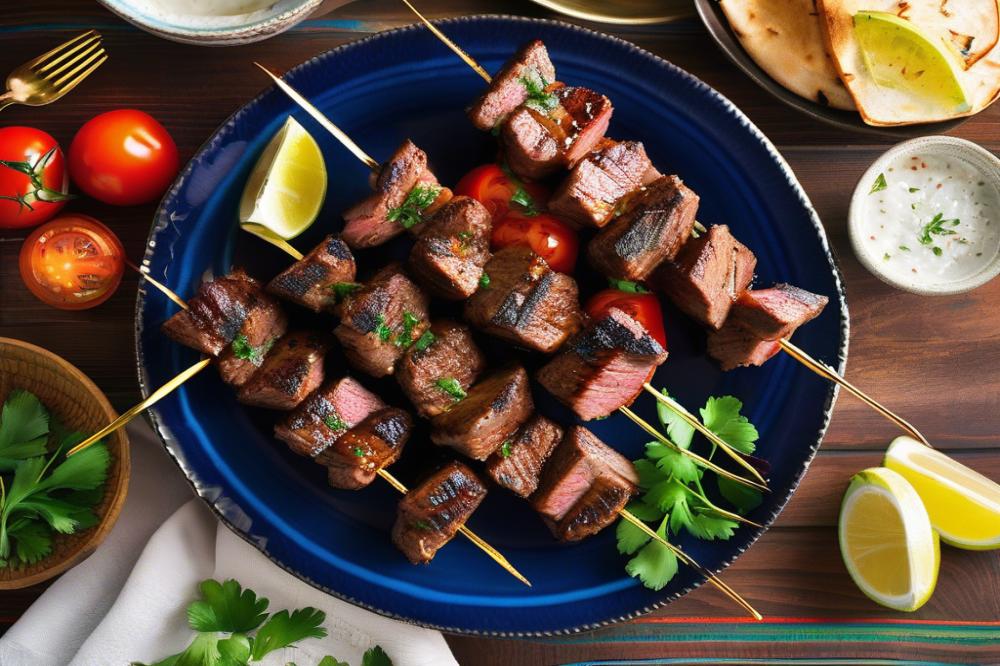Understanding Lebanese Tea Culture
Lebanese cuisine is a vibrant tapestry of flavors and traditions. It reflects the rich history of the region, influenced by diverse cultures. Each dish tells a story, from aromatic spices to fresh herbs. Among these culinary delights, tea holds a special place in social gatherings. People enjoy sipping on this comforting beverage while sharing stories and laughter.
Within the realm of Middle Eastern drinks, aromatic tea stands out. Cardamom and rosewater are two beloved ingredients that create a captivating flavor profile. This fragrant combination is particularly popular in Lebanon. The essence of cardamom adds depth, while the sweet notes of rosewater offer a delicate touch. When these ingredients blend together, they form what many refer to as Cardamom Rosewater Tea.
Traditional tea preparation is an important ritual in Arab culture. It often symbolizes hospitality and friendship. Guests are usually welcomed with a steaming cup of herbal tea, showcasing the host’s generosity. This sense of community is central to Lebanese life. Preparing tea is not merely a task; it is an art form passed down through generations. The care taken in crafting each cup creates a meaningful experience. Thus, diving into this tea recipe offers not just a taste but also a glimpse into a cherished heritage. Enjoying a cup of Lebanese Tea allows one to partake in the warmth and beauty of Middle Eastern culture.
Lebanese Tea: An Aromatic Experience
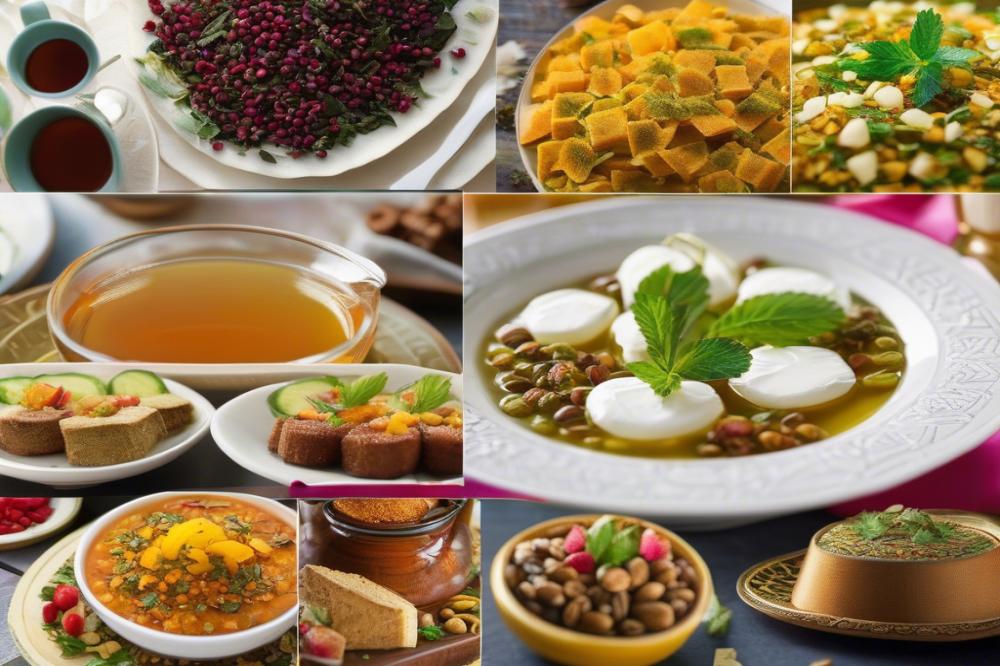
Lebanese cardamom and rosewater tea offers a delightful and aromatic experience that captivates the senses. The fragrant notes of cardamom blend beautifully with the sweet essence of rosewater. This traditional tea has a warming quality that soothes the soul. When brewed, it produces a golden hue, enticing anyone nearby with its alluring scent.
As a cherished herbal tea, it stands out among the many Middle Eastern drinks commonly enjoyed. People savor it for its calming effects and the comforting warmth it brings. It is often consumed during gatherings or simply as a relaxing afternoon treat. The infusion of spices creates a complex flavor profile that appeals to many. In Lebanese cuisine, this tea is more than just a drink; it represents hospitality and culture.
Serving tea is an art in itself within Lebanese culture. Guests are welcomed with a cup of this aromatic tea, highlighting the importance of togetherness. It is common to see this beverage paired with sweet snacks or savory dishes during family celebrations. When preparing the drink, special care is taken in selecting fresh ingredients. This reflects the pride in family traditions passed through generations. The ritual of sharing tea encapsulates the warmth and openness characteristic of Lebanese hospitality.
In everyday life, enjoying this tea can be more than a moment of relaxation. It can signify connection and gratitude among family and friends. Even the process of tea preparation can be a joyful experience. With the right balance of flavors, each cup tells a story about culture and community. Whether it’s a small gathering or a big celebration, this tea plays a key role in creating memorable moments.
Ingredients and Quantities
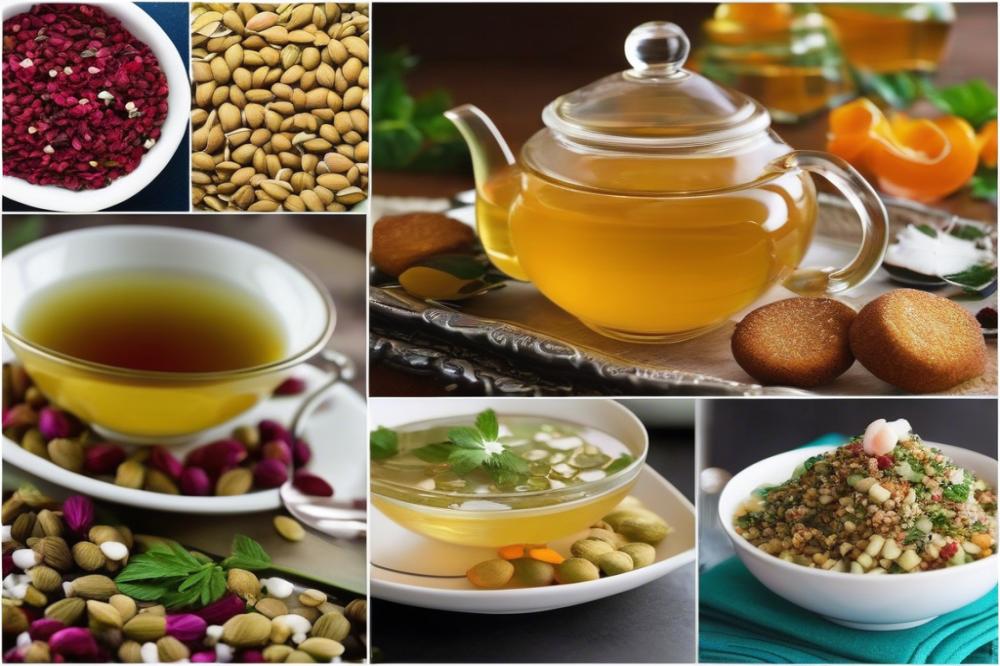
To prepare a delightful cup of Lebanese cardamom and rosewater tea, you will need a few key ingredients. This traditional tea recipe showcases the flavors of Lebanese cuisine. Start with 4 cups of water to make a generous amount of this aromatic tea.
Next, gather 2 tablespoons of loose black tea. This will serve as the base for your brew. Adding depth to the flavor, include 4 to 6 whole cardamom pods. These little pods pack a punch with their unique spice, adding warmth to the drink.
For that aromatic twist, 1 tablespoon of rosewater is essential. This ingredient brings a floral touch that enhances the overall experience. Sweetening the tea is another personal choice. You can add sugar or honey based on your preference for sweetness.
With these ingredients in hand, you are well-prepared for an enjoyable tea preparation process. Each element plays a vital role in creating this herbal tea, perfect for sipping at any time of day. Enjoy indulging in this cultural beverage that embodies the rich flavors of Middle Eastern drinks.
Method of Preparation
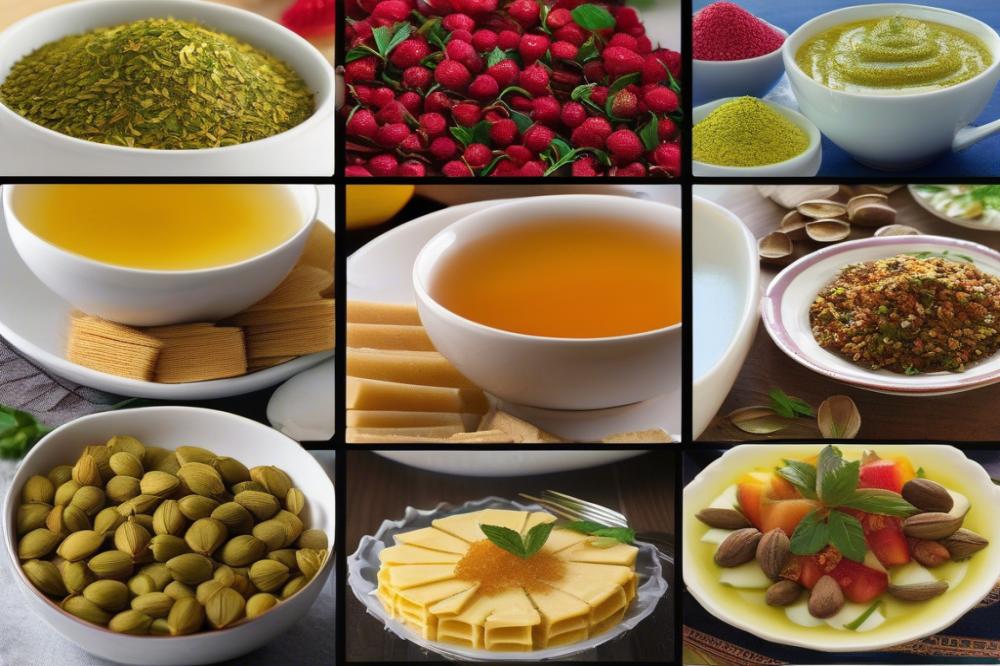
Creating the perfect Lebanese cardamom and rosewater tea can be a delightful experience. Follow this tea recipe to enjoy a cup of aromatic tea that captures the essence of Lebanese cuisine.
Step-by-step Instructions
Start by boiling water in a pot. The quantity of water depends on how many servings you want to prepare. Once the water begins to bubble, proceed to the next step. Add the black tea leaves and crushed cardamom. Use about one teaspoon of cardamom for every cup of water. This spice is the key to the tea’s distinctive flavor. Allow the mixture to steep for 5 to 7 minutes. A longer steeping time will yield a stronger brew.
After steeping, it’s time to strain the tea. Use a fine mesh strainer or a tea infuser to remove the leaves and cardamom pods. Pour the liquid into a teapot or individual cups. The next step is where the magic happens. Add a few drops of rosewater to the tea. This ingredient will make the drink fragrant and floral. Adjust the amount according to your taste preference. For sweetness, incorporate sugar, honey, or another sweetener. Stir until it completely dissolves.
Tips for Enhancing Flavor
To elevate the flavors during tea preparation, consider some additional steps. For a richer taste, try toasting the cardamom pods lightly in a dry pan before adding them to the tea. This will help release their essential oils. Another method includes adding a slice of fresh ginger to the pot for a hint of spiciness. If you prefer a milder version, use less cardamom or reduce the steeping time. Remember, the key is to enjoy the process as much as the beverage itself. Many people love to serve this tea warm, but it can also be refreshing when chilled. This variation can be a great addition to summer gatherings or family occasions, making it one of the cherished Middle Eastern drinks.
Nutritional Information
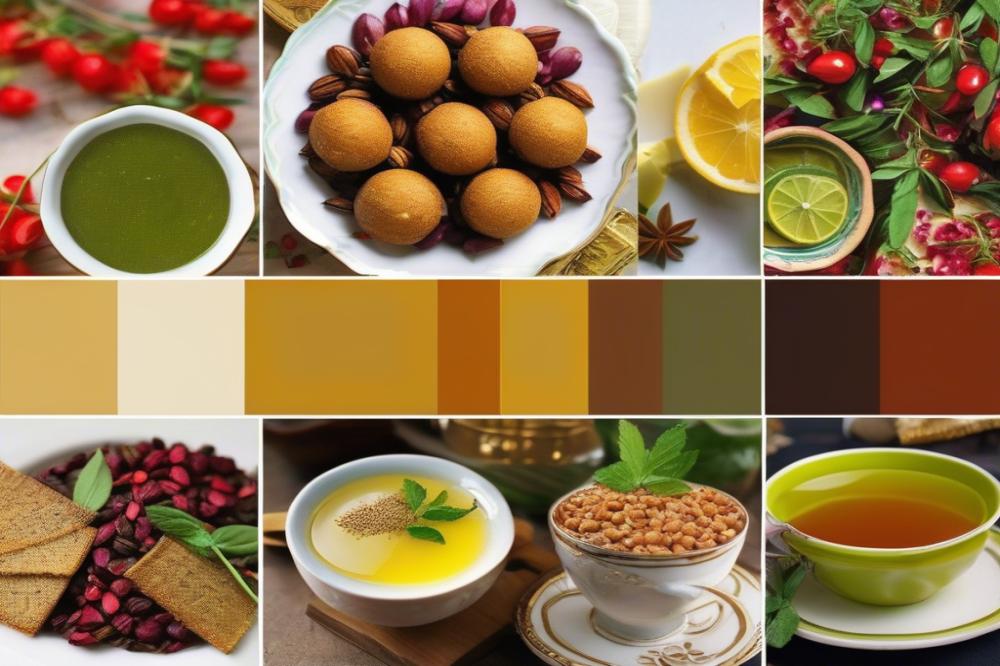
When preparing your aromatic tea, it’s important to understand the health benefits of its individual ingredients. Each one plays a significant role in enhancing both flavor and wellness.
Overview of the Health Benefits of Key Ingredients
Black tea is rich in antioxidants. These compounds help combat oxidative stress in the body. You might find black tea beneficial for heart health. Studies suggest it may lower cholesterol levels and improve blood circulation. Including it in your diet can also give you a gentle energy boost.
Cardamom enhances not only the flavor but also your digestive system. This spice has been known for its ability to relieve indigestion and bloating. Many cultures use cardamom as an anti-inflammatory ingredient. Its strong aroma adds depth to the overall experience of traditional tea.
Rosewater contributes to a sense of calm. Using it in your tea can create a soothing experience. Some people apply rosewater to their skin as well. It may help maintain hydration and improve overall complexion. Integrating it into your routine can promote relaxation.
Sweeteners like sugar or honey provide quick energy. While they make your herbal tea delightful, moderation is key. Using too much can lead to excess calories. It’s wise to balance taste with nutrition for a healthier drink.
Caloric Content and Serving Size Suggestions
Understanding the caloric content of your tea recipe can guide your consumption. A standard serving typically contains around 30 to 50 calories depending on the amount of sweetener added. For a satisfying drink, consider one cup brewed with one teaspoon of sugar or honey.
When enjoying this Middle Eastern drink, remember serving sizes matter. An ideal portion is about eight ounces. This allows you to appreciate the unique flavors without overindulging. Following these guidelines can help you savor every sip while maintaining your wellness goals.
Cultural Significance of Lebanese Tea
Historical Context of Tea in Lebanese Society
Lebanon has a rich tradition of tea drinking that dates back centuries. The practice of enjoying tea reflects the country’s diverse heritage. Historically, tea was a symbol of hospitality and comfort. Families would often gather around to share stories over cups of aromatic tea. The addition of cardamom and rosewater in the tea recipe highlights the fusion of flavors typical of Lebanese cuisine. This beverage holds a special place in the hearts of many, representing both daily life and festivities.
Rituals and Occasions Where Lebanese Tea is Served
Specific occasions call for this herbal tea. Celebrations such as weddings and holidays often feature tea as a staple drink. On quieter days, it serves as a comforting beverage during family visits. Guests are usually welcomed with a steaming cup of tea, signifying warmth and friendship. Certain rituals, like Friday afternoon gatherings, highlight tea’s role in fostering connections. It’s common to see families sitting together, sipping tea, and enjoying each other’s company.
Comparison to Other Middle Eastern Drinks
Lebanese tea stands out among other Middle Eastern drinks. While Arabic coffee is strong and robust, tea offers a different experience. Its delicate balance of flavors from cardamom and rosewater makes it unique. In contrast, Turkish tea is typically served black and strong, without the added spices. Chai, from other regions, often features spices but varies widely in preparation. The emphasis in Lebanese culture on aromatic tea with floral notes creates an inviting atmosphere enjoyed by many. Overall, these cultural beverages highlight the importance of tradition and social bonding across different regions.
Your Journey with Lebanese Cardamom and Rosewater Tea
Lebanese cardamom and rosewater tea is more than just a drink; it’s a doorway into the heart of Lebanese culture. This beloved beverage offers a harmony of flavors that many consider essential to enjoying the warmth of hospitality. Cardamom brings a spicy, aromatic touch, while rosewater adds a gentle floral note that elevates the whole experience. When enjoyed, this tea allows you to feel connected to rich traditions that have been passed down through generations.
Trying out this traditional tea recipe at home can be a rewarding experience. It invites you to explore the intricate process of brewing and savoring each sip. Gathering the ingredients is easy, and preparing them can become a cherished ritual. You might find joy in inviting friends over for a tea afternoon, showcasing your creation, and sharing stories around the table. Don’t hesitate to adjust the ingredients to match your taste. Whether it’s a splash more rosewater or an extra pinch of cardamom, make it your own.
In terms of flavors, the combination is delicate yet vibrant. Each cup is a celebration, offering comfort and joy. This beverage plays a significant role in Lebanese cuisine, symbolizing friendship and hospitality. From festive gatherings to cozy evenings, it fills both the room and the heart with warmth. Making this tea is not just about the ingredients; it’s about crafting a moment to be enjoyed. So why not take the plunge and create a cup for yourself? Explore this delightful world. Embrace the traditions, and let each sip transport you to a place where flavors and culture unite.

